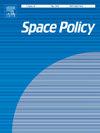The “due regard” obligation in the deployment and operation of satellite mega-constellations
IF 1.9
4区 社会学
Q2 INTERNATIONAL RELATIONS
引用次数: 0
Abstract
Satellite mega-constellations pose significant challenges to space traffic management and environmental governance. The due regard obligation under Article IX of the Outer Space Treaty, which is critical to addressing regulatory gaps, plays an important role in coordinating the activities among actors, promoting common interests, and adapting to technological advances. It presents both substantive and procedural obligations for the regulation of mega-constellations. At the substantive level, due regard entails the balancing of rights and interests in cases of unreasonable interference. Conflict may arise from mega-constellation activities with regard to the risk of orbital collisions, interference with spacecraft launches, interference with astronomy, and impacts on the space debris environment. Guided by the obligation, the State concerned should take coordinated action to avoid collisions, reserve launch windows for critical space missions, minimize impacts on astronomy, and enhance space debris mitigation measures. At the procedural level, due regard requires cooperation between States in the form of impact assessment, notification and consultation, building trust, and maximizing the utility of resources and space. Furthermore, in order to address the challenges posed by mega-constellations, there is an urgent need to develop and improve space traffic management regimes.
卫星巨型星座部署和运行中的“适当考虑”义务
卫星巨型星座对空间交通管理和环境治理构成重大挑战。《外层空间条约》第九条规定的适当考虑义务对解决监管空白至关重要,在协调行为体之间的活动、促进共同利益和适应技术进步方面发挥着重要作用。它提出了管理巨型星座的实质性和程序性义务。在实质层面上,适当的考虑需要在不合理干涉的情况下平衡权利和利益。在轨道碰撞风险、对航天器发射的干扰、对天文学的干扰以及对空间碎片环境的影响等方面,大星座活动可能产生冲突。在这一义务的指导下,有关国家应采取协调行动,避免碰撞,为关键空间任务保留发射窗口,尽量减少对天文学的影响,并加强空间碎片缓减措施。在程序一级,适当的考虑需要各国以影响评估、通知和协商、建立信任和最大限度地利用资源和空间的形式进行合作。此外,为了应对巨型星座带来的挑战,迫切需要制定和改进空间交通管理制度。
本文章由计算机程序翻译,如有差异,请以英文原文为准。
求助全文
约1分钟内获得全文
求助全文
来源期刊

Space Policy
Multiple-
CiteScore
3.40
自引率
36.40%
发文量
40
期刊介绍:
Space Policy is an international, interdisciplinary journal which draws on the fields of international relations, economics, history, aerospace studies, security studies, development studies, political science and ethics to provide discussion and analysis of space activities in their political, economic, industrial, legal, cultural and social contexts. Alongside full-length papers, which are subject to a double-blind peer review system, the journal publishes opinion pieces, case studies and short reports and, in so doing, it aims to provide a forum for the exchange of ideas and opinions and a means by which authors can alert policy makers and international organizations to their views. Space Policy is also a journal of record, reproducing, in whole or part, official documents such as treaties, space agency plans or government reports relevant to the space community. Views expressed in the journal are not necessarily those of the editors or members of the editorial board.
 求助内容:
求助内容: 应助结果提醒方式:
应助结果提醒方式:


